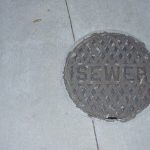While most aspects of
domestic plumbing should be left to the
professionals, there are some important things that every homeowner should know. With a little bit of knowledge, you may be able to avert a plumbing disaster. So, even if you don’t feel confident about DIY, here are five things that you should know.
Your Main Water Source:
In the event of any plumbing emergency, you can minimize damage by immediately shutting off your water supply. In order to accomplish this, you need to know the exact location of your main water source. It is usually located near to your water meter or could be a separate shut off. So, it is worth familiarizing yourself about where it is and how to operate your shut off.
How to Read a Water Meter and Bill:
While most utility companies are very accurate, it is still worth knowing how to verify your actual water usage. You will need to know how to read the meter and bills, so you can compare readings and check the charges are correct. Knowing how to read your meter will also help you to catch any water leaks, as a water leak can cause a massive increase in your water consumption. There is usually a number on water bills, so you can contact your local water company to clarify any details.
The Location of Your Gas Shut Off:
Another vital thing homeowners should know is the location of the gas shut off and how to use it. You should be aware of how the gas supply for each appliance can be shut off and how to shut off the main supply. This means that if there is an issue that only affects a specific appliance, you won’t be forced to shut off the supply for the whole building.
Specific Shut Off Valves:
Finally, you should be aware of the individual water shut off valves for all the appliances and fixtures in your home. Water heaters, in particular, can cause problems, as they do not have an infinite lifespan. Average water heaters have a lifespan of between 8 to 12 years. If your water heater fails, you may be left without any hot water, but this doesn’t mean that your whole home should be without a water supply. By shutting off the supply to the water heater, you can protect your home, but also still have water for bathroom use, cleaning or cooking. In the same way, if a fixture develops a leak, you can retain water use for other fixtures and prevent damage by using the shut off valve. Be aware that some of these shut off valves are only designed for emergency use and may not be able to be repeatedly used. So, only use them as and when necessary.
The Signs of Leaks:
Finally, homeowners can avoid massive property damage and wasted water by being aware of the signs of leaks. It is a good idea to develop a habit of checking for any signs of leaks on a regular basis. Don’t dismiss any pools of water you may find in your home and check around for the source. Undetected leaks can waste gallons of water and may be allowing moisture to seep into woodwork, drywall and other building materials in your home.
By Giovanni Longo President Flood Brothers Plumbing
Giovanni Longo is a 3rd generation master plumber who has been practicing his craft and trade in the greater Los Angeles area for well over a decade and a half. A plumbing and hydraulics-engineering innovator, Giovanni’s particular world-class expertise focuses on dealing with challenging sewer system designs as well as resolving complex commercial and residential draining issues. As a certified Flood Mitigation expert, he is also well versed in a wide variety of water damage and remediation solutions.





